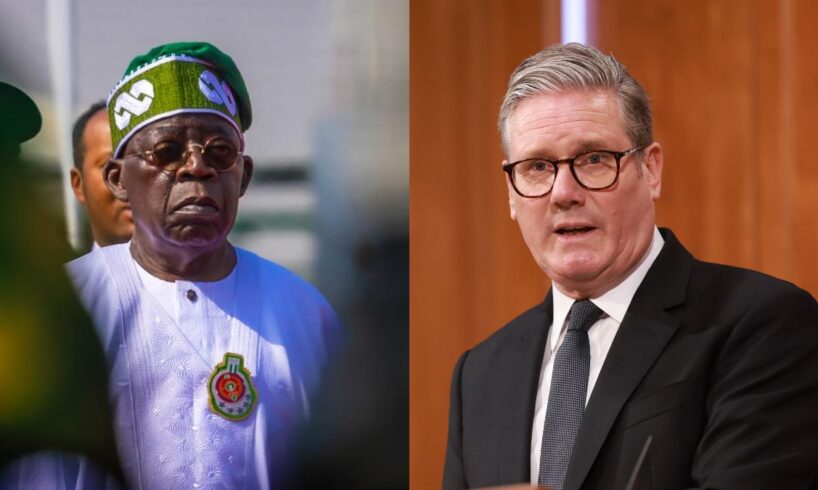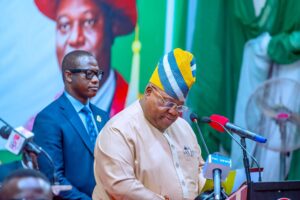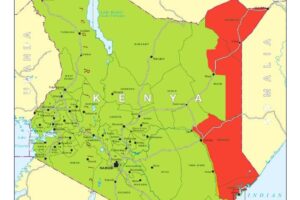
The United Kingdom has reaffirmed its commitment to working closely with Nigeria to tackle rising cyber threats, pledging technical support, intelligence sharing, and joint initiatives to build resilience in the face of growing digital insecurity.
Speaking in Abuja on Tuesday, September 2, at the inaugural seminar on Anticipatory, Cyber, and Digital Diplomacy for Strengthening Nigeria’s Foreign Policy, the British High Commissioner to Nigeria, Richard Montgomery, said the UK was “very pleased” to be a sponsor of the event and highlighted shared achievements in combating cybercrime.
Montgomery noted that the partnership, formalised last year under a cybersecurity Memorandum of Understanding, spans five critical areas: threat hunting, cyber threat intelligence capability, protection of critical national infrastructure, digital forensics, and national incident response planning.
“These are fundamental to building government cyber capabilities and effective international cyber diplomacy,” he said, warning that new tools like artificial intelligence risk “turbocharging” dangers ranging from disinformation to hate speech.
Nigeria’s Digital Sovereignty and Global Role
While affirming Nigeria’s sovereign right to determine its cyber policies, Montgomery pledged the UK’s support in sharing lessons from its Foreign Office, universities, and private sector.
“We are ready to help Nigeria strengthen its digital ecosystem,” he added.
Responding, Nigeria’s Minister of Foreign Affairs, Ambassador Yusuf Tuggar, underscored the urgency of positioning Nigeria as a “principled, capable and forward-looking actor in the evolving global digital order.”
Tuggar announced the establishment of a Cyber Diplomacy Unit within the ministry to spearhead Nigeria’s international cyber engagements, train African cyber negotiators, and promote ethical digital governance.
“We must lead Africa’s digital future,” he declared, stressing that Nigeria’s strategy would prioritise inclusion of women and youth, regional collaboration, and partnerships with the private sector and diaspora communities.
Anticipatory Diplomacy and the Future of Statecraft
Tuggar described the world as undergoing a “historic transformation” driven by disruptive technologies, shifting geopolitical alignments, and deepening digital interdependence.
“From artificial intelligence and quantum computing, to the geopolitics of data and the militarisation of cyberspace, the very nature of statecraft is being rewritten before our eyes,” he said.
The minister stressed the importance of anticipatory diplomacy, which, he explained, enables nations to detect early warning signals, foresee systemic shocks, and prepare strategically for the future.
“This is not optional. The only question to ask is how prepared we can be,” Tuggar warned.
Nigeria’s foreign policy, he argued, must adapt to a world where technology firms often wield more influence than sovereign states, shaping public opinion, economies, and conflict dynamics.
He added that Nigeria’s engagement in ECOWAS, the African Union, and the United Nations must be grounded in sovereignty, trust, and innovation.
Legal Frameworks for the Digital Age
The Minister of Justice and Attorney General of the Federation, Lateef Fagbemi (SAN), echoed these sentiments, noting that the digital era demands a “paradigm shift” in how nations approach diplomacy, security, and governance.
“The 21st century has introduced a transformation in conflict, communication, and cooperation. Traditional diplomatic methods are no longer sufficient,” Fagbemi said.
He called for robust legal frameworks to deter cybercrime, protect infrastructure, and enforce justice, stressing that public diplomacy via social media and digital platforms must be managed “ethically and responsibly.”
“Cyber threats pose a danger to national infrastructure and the rule of law,” he warned, pledging the Ministry of Justice’s collaboration with security agencies, civil society, and the private sector to safeguard Nigeria’s digital future.
Regional and Global Relevance
The Abuja seminar drew diplomats, security experts, legal practitioners, and representatives from the private sector.
Analysts noted that the discussions align with global trends, as major powers such as the United States, China, the UK, and the European Union have already adopted comprehensive cyber diplomacy strategies.
Nigeria’s own digital diplomacy has been in the global spotlight since June 2021, when the government suspended Twitter after the platform deleted a post by then-President Muhammadu Buhari.
The move fuelled international debates around digital sovereignty, platform accountability, and free expression.
By 2024, cybersecurity firm Nitroswitch estimated that Nigeria was facing more than 4,000 cyber-attacks daily, underscoring the urgency of building stronger defences.
Alongside these threats, the spread of misinformation and hate speech continues to threaten national unity and governance.
Tuggar described Nigeria’s launch of the Anticipatory Cyber and Digital Diplomacy Masterclass Series as a “digital gift to the world,” emphasising that the resource will be freely available to diplomats from Africa and the Global South.
With both UK and Nigerian officials emphasising the importance of inclusive strategies, ethical AI, and climate-conscious digital practices, the partnership represents a significant step in reshaping Nigeria’s approach to navigating the challenges and opportunities of the digital era.





